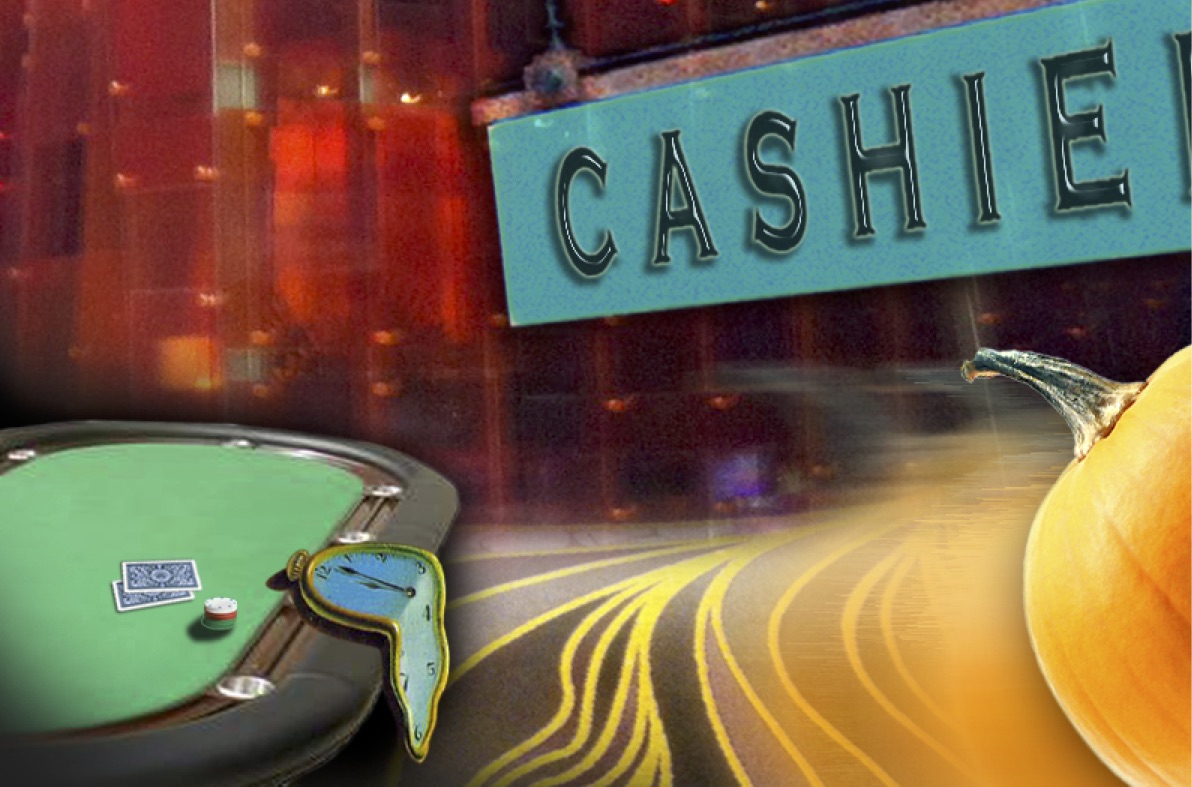“Tommy!”
I was carrying some racked chips to the cashier in the Pavilion room at the World Series of Poker. I stopped and turned to see the man coming toward me from three tables away. I knew the face. I knew the voice. But I had no idea who it was. This happens fairly often to me in poker rooms. I don’t think of it as forgetfulness. It’s more like, overexposure.
When we shook hands, I didn’t try to hide my ignorance. “It’s me!” he said. “Cinderella man!”
And it all came back. He was referring to Cinderella Syndrome, from Elements of Poker.
“Tom!” I said. “Good to see you!”
Tom and I had met only once before, in the spring of 2004. I wrote about that meeting in the “Quitting” section of EOP. Here is that passage:
My third client was a friendly old fellow who lived in Las Vegas. He wrote to me and asked if I would allow him to pay me a fee so that he could buy me lunch and talk about poker. Already I knew that consulting was going to agree with me.
We talked on the phone and we decided to meet for lunch the next time I was in town. When we met, I asked him to describe his poker sessions to me, what times he starts, what he does when he gets to the poker room, how much money he takes, what he plays, how much he buys in for and why, how he bets in certain common situations, and what his results have been.
Tom was very enthusiastic about poker. Although he had been playing for many years, it was only in the last year that he had “gotten serious” about getting better at poker and making money at it. He was consuming books and ideas and he was putting effective effort into his betting strategies, his understanding of his opponents, and everything else that has to do with playing the game. But his results – his actual score – had been consistently bad.
Then I asked him to describe his quitting, when he does it, and why, and do you play too long sometimes? Maybe because you’re stuck? Do you play when you think you are too tired to play? Or when you just feel like crap?
Here is my recollection of what he said: “I’ve been playing five nights per week lately, in the $100 maximum buy-in no-limit hold’em game at The Mirage. I start at 7pm, and I quit at around two or three in the morning. By 11 o’clock, I am ahead almost every night and playing great. And then something will go wrong or I’ll lose a pot or, I don’t know, I get testy and things get to me, and a few hours after that I’ve got my head in my hands.”
“What we have here is a classic case of Cinderella syndrome,” I said. “You need to get your butt out of the casino by the stroke of midnight, before you turn ugly. That’s the only thing you should focus on, Tom. Nothing else. If you do not acquire the ability to walk away when you are playing like shit, then you will lose, and lose, and lose, night after night after night, just like you have been. There can’t be anything more important for you to work on.”
He agreed, enthusiastically. Over dessert and coffee we planned some short and long range changes.
“What are you doing right now?” I said.
“Same as you, I expect,” he said.
“You just got done playing?”
“Yep, $2/5 PLO. They got me for $900, those heartless bastards. Look at this.” Tom opened his left hand, revealing a few green chips and some reds, about a hundred bucks worth.
“Good quit!” I said.
“You’re damn right,” he said. “I knew I had to get the hell out of here. You did see what time it is, didn’t you?”
We laughed and sat at an empty table for a while and laughed some more. He said something about how awesome it is to be able to feel good about himself after a losing session. I said something about how awesome it is that we’re in action at all. We agreed on all points and hailed poker and went our ways.
When I set out to write Elements of Poker in 2007, I had a stockpile of content. It was my coaching notes, collected over three years and fifty clients. What should I start my book with? I decided I wanted to lead with something I suck at. With a topic that benefited my clients. With something everyone struggles with at some point. So I started with quitting.
If you are already passionate about this game and you just can’t get enough, and you fantasize about how great it will feel when you possess great skills and are slaying your foes, hear this. It’s another excerpt from EOP:
Think of quitting as a skill set unto itself, with branching subsets of skills for each type of quitting situation. There’s knowing how to quit at limit games, and there’s knowing how to quit at no-limit. There’s knowing how to quit when you have a curfew, and when you don’t. There’s being able to quit when you’re ahead, and when you’re stuck. There’s quitting when you feel good, and for when that doesn’t happen, you need to know how to quit when you feel bad.
Bad quitting costs the most money and causes the most pain. My advice to anyone taking on this game is to hone your quitting skills alongside your betting skills, because even the toughest shark can become the biggest fish, after they turn into a pumpkin.
As my clients discover, less pain and more money go together. Coaching by Tommy


Add Comment